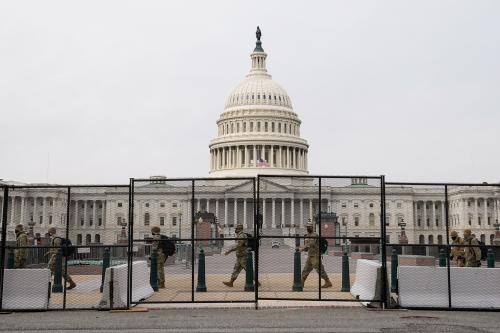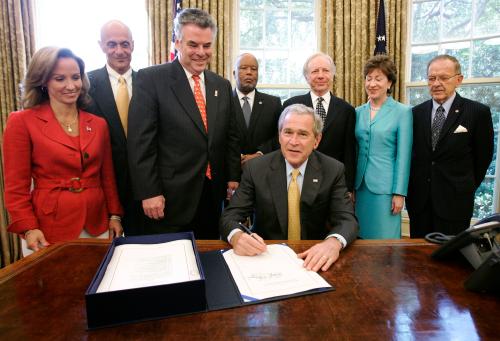After weeks of stymied advances and seemingly ineffective air strikes, the news from Afghanistan finally has turned positive. Starting with Mazar-e-Sharif, almost all the major cities in the North quickly fell to the Northern Alliance, culminating with the capital of Kabul. These are heady times, but let’s not get carried away too much. The strategic environment is certainly changed, but the road ahead still requires hard work. The present victories do not mean that the war in Afghanistan is truly over.
Not to be the dour voice that spoils the party, but a few things are important to remember. The first is that the one thing Afghan history tells us is that seizing cities does not equal true control. Ask the Persians, the British and the Soviets, all of whom held the primary cities, but were later kicked out. Throughout the nearly decade-long Soviet occupation of the country, they held all the major cities, but never established any sort of power over the countryside. The same held true for the Afghan communist regime that technically held on to power for three more years after the Soviet withdrawal, only by clinging to Kabul. Outside of urban areas, however, the mujahedeen were able to operate with near impunity, including by using many of the same cave complexes where bin Laden and his cohorts hide as bases of operation. Now that Kabul is in friendly hands, we should not kid ourselves that the job is done. The Taliban is a movement that will have to be rooted out, not just in the urban areas, but also the rural lands from which it sprung.
Second, we need new friends. The Northern Alliance has done yeoman’s work and, in the span of weeks, accomplished more than anyone expected. However, it has in all likelihood punched about as far above its weight class as it can. This week’s victories all occurred in areas where it enjoyed popular support from ethnic kin. Reportedly, the capture of both Herat and Mazar-e-Sharif coincided with uprisings of the local populace. As the Northern Alliance advances further southward, however, the equation changes. Its numerically smaller forces become stretched ever thinner, and it begins to enter unfamiliar territory, where the Pashtun population sees it as a force of outsiders.
The final defeat of Mullah Omar and his cohorts will only occur with the true emergence of anti-Taliban forces in the south, within the Pashtun tribes themselves. The United States must continue to focus on building up these forces and persuading local Pashtun tribal elders and warlords that a potential window of opportunity to share in the spoils of victory is closing. It must also make clear to the leaders of the Northern Alliance that the capture of the capitol does not give it the automatic right to rule. Any claim on its part to determine exclusively the final government of Afghanistan as a whole will make it less likely that the rest of the nation will actually seek to join it.
Finally, we should not forget what motivates us. The goals of the U.S. military operations in Afghanistan were threefold: Capture or punish the al-Qaida terrorist leaders who planned the Sept. 11 attacks, deny their organization freedom of operation within Taliban-held territory and send the message that any regime that gives terrorists such license to operate will pay the ultimate price. We have accomplished only the third, and even then not to the full extent. Bin Laden and his lieutenants are still at large. The Taliban still control large tracts of territory, at least the size of all of Missouri, for them to hide out in. Mullah Omar and the rest of the Taliban leaders have certainly been dealt a defeat, but they have not yet fully paid up.
Thus, while the sights of Afghan men and women finally free to dance in the streets are welcome, they do not signal the end of our efforts. Just as terrorist threats within the United States still remain to be defended against, regardless of events in Kabul, so does the rest of our military mission in Afghanistan.



Commentary
Op-edNow What?
November 15, 2001